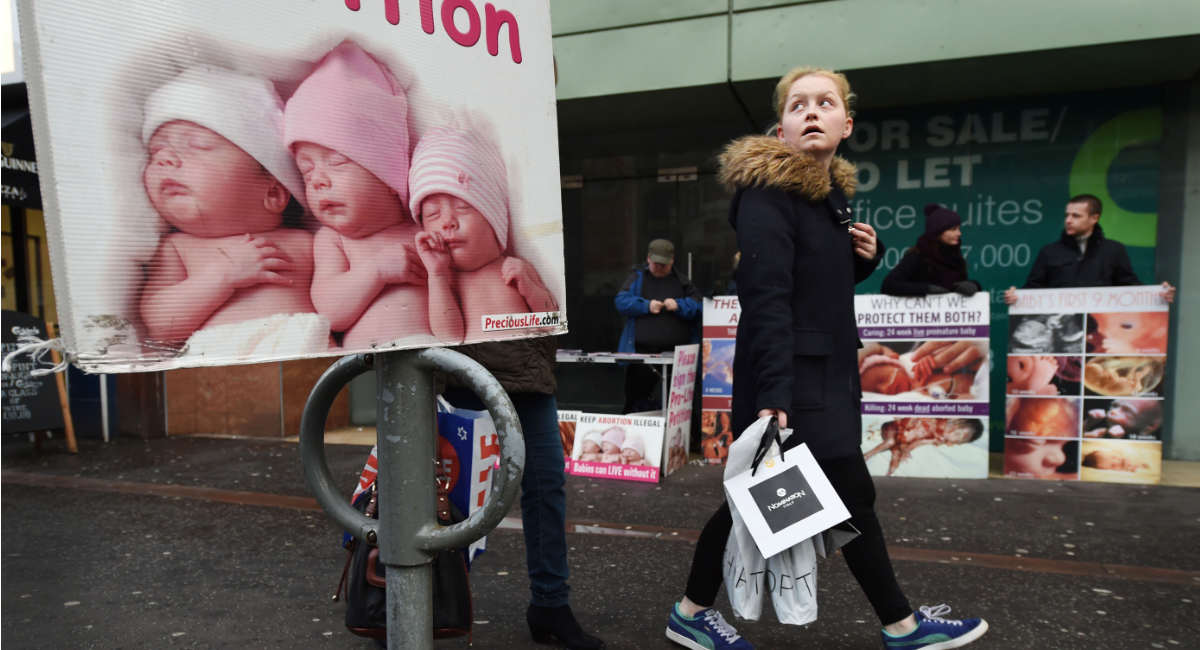In Ireland, Minister for Health Stephen Donnelly announced last month that he has approval to put “safe access zones” into place around abortion facilities. Claiming it will protect a woman’s “freedom” to undergo an abortion, an official bill will now be crafted and sent to the Department of Health — but some fear it could infringe upon religious freedom by banning public prayer near abortion businesses.
In a statement released in late July, Donnelly said he had secured cabinet approval to move forward with the bill. “Nobody should be harassed, insulted, intimidated, or interfered with in any way, or have their decision to access lawfully available healthcare services subject to attempted unsolicited influence by strangers,” he said. “The heads of bill [general scheme of the bill] designate specified healthcare premises and 100 metres surrounding their perimeter as safe access zones.”
He added, “I am committed to seeing the Bill drafted as quickly as possible so it can be introduced to the Oireachtas, and I would appreciate support for that Bill when it is introduced.”
The Department of Health said punishment for violating the proposed law could range from a mere fine to imprisonment. A previous version of the bill, drafted by pro-abortion group Together for Safety, called for a jail sentence of six months or a €3,000 fine ($3,070).
READ: Spain criminalizes pro-life outreach at abortion facilities
Donnelly criticized people protesting or praying outside of abortion facilities as an effort to intimidate women and abortion facility staffers. “These demonstrations have taken various forms. They have included the placing of small white coffins outside the National Maternity Hospital and the display of disturbing images elsewhere. Some demonstrations have taken place outside hospitals, while others have been held outside GP clinics,” he said. “These demonstrations can cause anxiety and distress to those accessing and providing services. They seek to intimidate and deter women from accessing these services – and our healthcare workers from providing them.”
Pro-life activists have responded with shock, and accused Donnelly of being deceptive about what takes place during pro-life protests.
“Garda Commissioner Drew Harris wrote to the Minister for Health [Stephen Donnelly] to clearly state that there was ‘no evidence’ to suggest that pro-life protests at any centers were abusive or threatening. He confirmed that the vigils were, in fact, peaceful and lawful,” Megan Ní Scealláin of the Life Institute said in a statement. “Of course, Stephen Donnelly knows this, and he is choosing to ignore the advice of Gardai to do the bidding of campaign groups and to punch down at pro-life activists who he knows are breaking no laws. In fact, the Garda Commissioner also stated that if any laws were to be broken existing laws were sufficient to deal with that.”
David Quinn, director of the Iona Institute, a Christian advocacy group, questioned the bill’s constitutionality.
“Assuming the law goes through, it will be one of the most restrictive in the whole of Europe because other countries have more respect for the right to protest and consider laws like this to be disproportionate. We already have laws in Ireland against intimidation or harassment and our Garda Commissioner has said so in the context of calls for these buffer zones. But the Government is pressing on anyway, egged on by most opposition parties and pro-abortion lobby groups,” he told the Catholic News Agency. “Ireland has gone from being an extremely pro-life country to the opposite end of the spectrum in just a few short years. Banning even pro-life prayer vigils within 100m of places that conduct or facilitate abortion shows how badly we have changed. If the law is as restrictive as promised, it may actually be unconstitutional. The president has the power to refer it to the Supreme Court when it is ready for him to sign in the months to come and he ought do so.'”
“Like” Live Action News on Facebook for more pro-life news and commentary!







